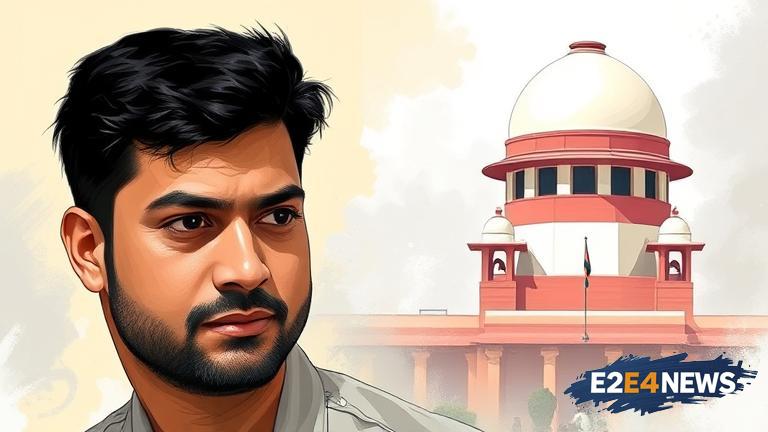The Supreme Court of India has granted a one-week extension of interim bail to Vikas Yadav, one of the convicts in the high-profile Nitish Katara murder case. The case, which has been ongoing for over two decades, has seen numerous twists and turns. Nitish Katara, a business executive, was abducted and murdered in 2002 by Vikas Yadav, the son of a wealthy politician, and his accomplice Vishal Yadav. The murder was allegedly committed due to a dispute over a relationship between Katara and Vikas’s sister, Bharti Yadav. The case gained widespread media attention and public outrage, leading to a lengthy and complex trial. In 2015, the Delhi High Court convicted Vikas and Vishal Yadav of murder and sentenced them to life imprisonment. However, the convicts have been granted interim bail on several occasions, sparking controversy and criticism from the victim’s family and human rights activists. The latest extension of interim bail has been granted to allow Vikas Yadav to attend to his ailing mother, who is reportedly suffering from a serious illness. The Supreme Court has directed Vikas Yadav to surrender before the trial court after the expiry of the interim bail period. The case has raised questions about the fairness and efficacy of the Indian justice system, with many criticizing the repeated grants of interim bail to the convicts. The victim’s family has expressed disappointment and frustration with the latest development, stating that it has caused them further distress and anguish. The case has also sparked debates about the influence of wealth and power in the Indian justice system, with many arguing that the Yadav family’s political connections have helped them secure favorable treatment. Despite the controversy surrounding the case, the Supreme Court has maintained that its decisions are guided by the principles of justice and the rule of law. The case is expected to continue to attract widespread attention and public interest, with many calling for greater accountability and transparency in the Indian justice system. The Nitish Katara murder case has become a symbol of the struggles and challenges faced by victims of crime and their families in India, highlighting the need for greater support and protection for those affected by violence and trauma. The case has also raised important questions about the role of the media and public opinion in shaping the outcome of high-profile cases, with many arguing that the intense media scrutiny has helped to ensure that the case remains in the public eye. As the case continues to unfold, it is likely to remain a major talking point in Indian politics and society, with many calling for greater reforms and improvements to the justice system. The Supreme Court’s decision to extend Vikas Yadav’s interim bail has been seen as a significant development in the case, with many waiting to see how the trial court will proceed with the case after the expiry of the bail period. The case has also highlighted the importance of ensuring that the rights of victims and their families are protected and respected, with many arguing that the Indian justice system needs to do more to support and empower those affected by crime. The Nitish Katara murder case is a complex and multifaceted one, involving issues of justice, morality, and human rights. As the case continues to evolve, it is likely to remain a major focus of attention and debate in India and beyond.
